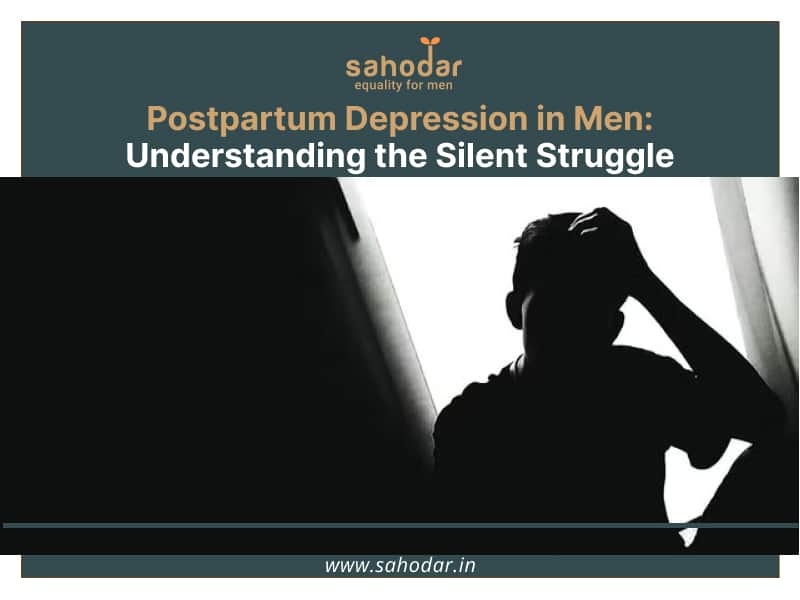While postpartum depression (PPD) is often associated with women following childbirth, research has increasingly shown that men can also experience this condition. The arrival of a new baby is a significant life event that brings joy, but it can also trigger emotional and psychological challenges for both parents. Understanding postpartum depression in men is crucial for promoting awareness, providing support, and fostering healthy family dynamics.
What is Postpartum Depression?
Postpartum depression is a complex mix of physical, emotional, and behavioural changes that can occur in new parents after the birth of a child. It is characterised by persistent feelings of sadness, anxiety, and exhaustion that can affect a parent’s ability to care for themselves and their newborn. Symptoms can range from mild to severe and may include irritability, mood swings, feelings of inadequacy, and difficulty concentrating.
Prevalence in Men
Research estimates that approximately 10% to 20% of new fathers experience postpartum depression, though some studies suggest the number could be higher. Factors such as hormonal changes, lack of sleep, relationship stress, and lifestyle changes can contribute to the development of PPD in men.
Causes and Risk Factors
Understanding the underlying causes and risk factors for postpartum depression in men is vital for prevention and intervention.
Hormonal Changes
Just as women experience hormonal fluctuations during and after pregnancy, men may also undergo hormonal changes that can affect mood. For instance, levels of testosterone may drop following the birth of a child, which has been linked to increased feelings of depression and anxiety.
Psychosocial Factors
New fathers may experience feelings of inadequacy or fear about their parenting abilities. The pressure to be a provider and a good parent can lead to stress, which can contribute to PPD. The transition to parenthood can also lead to a revaluation of identity and life goals, adding to the emotional burden.
Relationship Strain
A baby’s arrival can significantly strain a couple’s relationship. Conflict or lack of support between partners can exacerbate feelings of isolation and depression in new fathers. Communication breakdowns and changes in intimacy can lead to further emotional distress.
Previous Mental Health Issues
Men with a history of mental health conditions, such as depression or anxiety, are at a higher risk of experiencing postpartum depression. Past experiences with mental health can create vulnerabilities that are amplified during the transitional phase of becoming a parent.
Lack of Support
New fathers may feel isolated, especially if they lack support from family and friends. This isolation can lead to feelings of despair and helplessness. The societal expectation that men should be firm and stoic can prevent them from seeking help when they need it most.
Symptoms of Postpartum Depression in Men
Recognising the symptoms of postpartum depression in men is essential for timely intervention. Common symptoms include:
- Persistent Sadness or Low Mood: Men may experience ongoing sadness that does not improve over time.
- Increased Irritability or Anger: Emotional outbursts and heightened irritability can disrupt family dynamics.
- Difficulty Bonding with the Baby: A sense of disconnection from the newborn can lead to feelings of guilt and inadequacy.
- Withdrawal from Family and Social Activities: New fathers may isolate themselves from loved ones and activities they once enjoyed.
- Changes in Sleep Patterns: Insomnia or oversleeping can exacerbate feelings of fatigue and depression.
- Changes in Appetite: Significant weight loss or gain may occur due to altered eating habits.
- Feelings of Inadequacy or Competence Issues: Many men question their ability to be good fathers, leading to self-doubt.
- Substance Abuse: Some may turn to alcohol or drugs as a coping mechanism, which can further complicate their mental health.
Importance of Awareness and Support
Raising awareness about postpartum depression in men is crucial for several reasons:
Breaking the Stigma
Many men may feel reluctant to discuss their feelings due to societal expectations of masculinity. Encouraging open dialogue can help normalise these experiences, making it easier for men to seek help.
Providing Support
Partners, family members, and friends should be educated about the signs of PPD in men. Supportive environments can facilitate communication and encourage men to seek help when needed. Understanding that it’s okay for fathers to express vulnerability is essential.
Professional Help
Men experiencing postpartum depression should seek professional help. Therapists and counsellors trained in postpartum mental health can provide valuable support and strategies to cope with feelings of depression. Early intervention can lead to better outcomes for both fathers and their families.
Encouraging Self-Care
New fathers should prioritize their well-being. Engaging in self-care practices, such as exercise, proper nutrition, and mindfulness, can help alleviate symptoms of PPD. Creating a routine that includes time for personal interests and relaxation is vital for mental health.
Conclusion
Postpartum depression in men is a significant yet often overlooked aspect of parenthood. By understanding the causes, symptoms, and impacts of PPD on fathers, society can better support new parents in navigating the challenges of welcoming a child into their lives. Promoting awareness, encouraging open conversations, and providing accessible mental health resources are essential to fostering a healthier, more supportive environment for all parents. In recognising and addressing postpartum depression, we can contribute to the well-being of families and the next generation, ensuring that both mothers and fathers receive the support they need during this critical time.


Thanks for this information